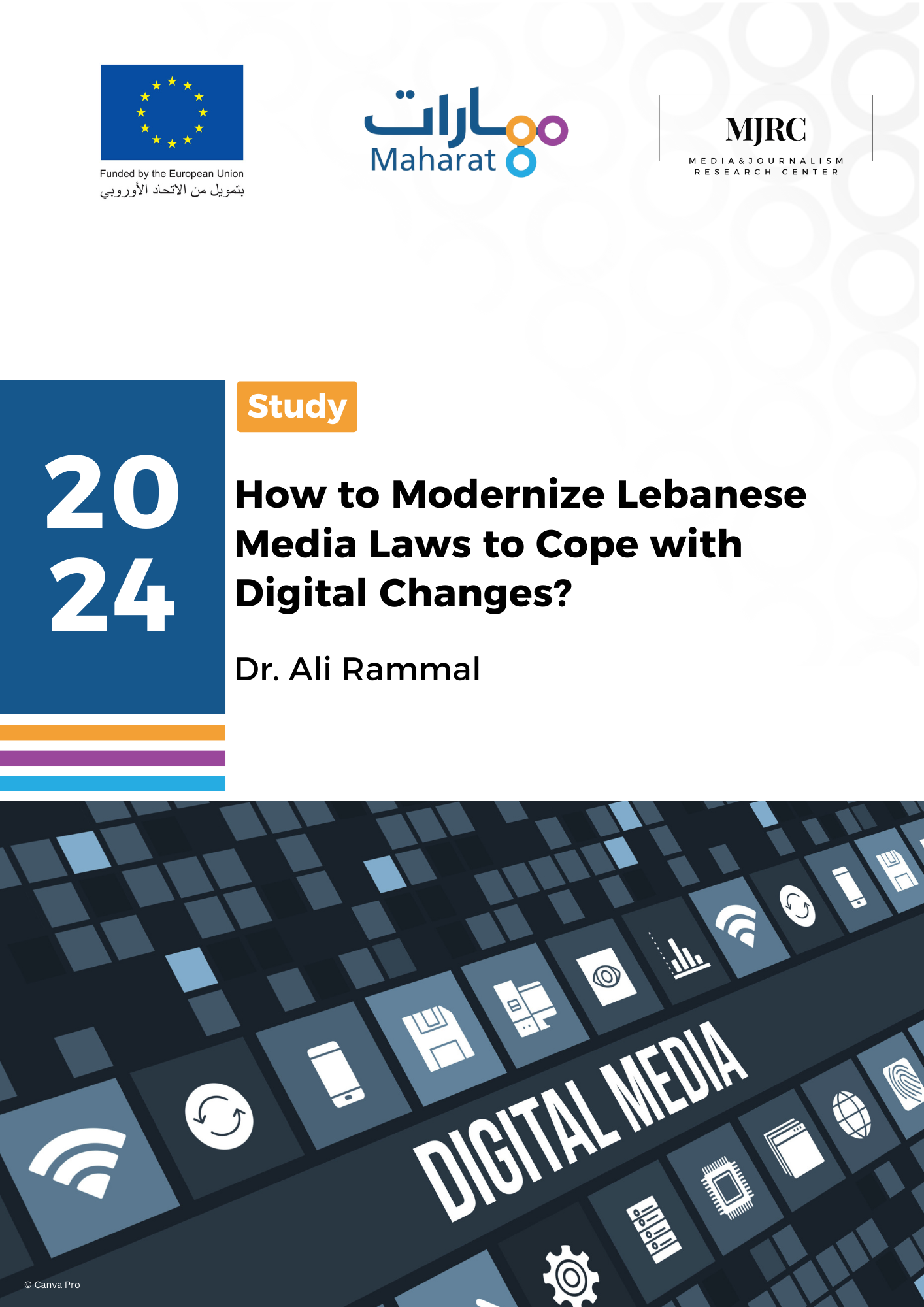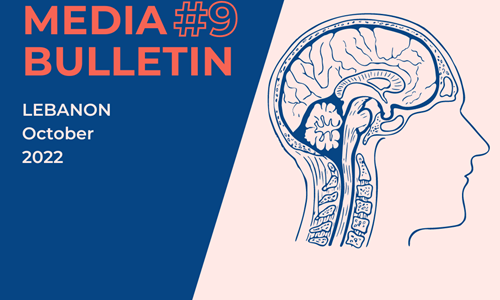
Modernize Lebanese Media Laws to Cope with Digital Changes
"How to Modernize Lebanese Media Laws to Cope with Digital Changes?" A study prepared by Dr. Ali Rammal presented the reality of media laws in Lebanon and showed the limitations of protection provided by Lebanese laws for privacy and personal data protection. The ubiquity of the internet has opened up multiple criminal activities and created new ways to collect information, in addition to operating systems and software containing inherent weaknesses that facilitate the theft of data protected by intellectual property rights. There is insufficient attention to personal data protection in current legislation, as existing laws view data from the perspective of economic opportunity, as evidenced by the combination of regulating electronic transactions and protecting data, to the extent that the title of the law is "Electronic Transactions and Personal Data" rather than data protection.
According to the study, this reality confirms the lack of compatibility of intellectual property protection laws with international developments, standards, and agreements. Additionally, there is inadequate protection for intellectual productions involving technology and creative innovation, and insufficient encouragement of innovation and competition in creative cultural sectors.
The study concludes that overall Lebanese laws in this regard require numerous amendments to comply with the general regulations for data protection according to European standards. There is also a need to enact a law specifically for digital media and digital content management, as well as to enact implemented decrees to address gaps in other laws and establish a national authority independent of Lebanese authority. Furthermore, there is a need to enhance digital media education programs and cyber awareness in educational institutions.
To access Dr. Ali Rammal's study:
How to Modernize Lebanese Media Laws to Cope with Digital Changes?
“How to Modernize Media Laws to Cope With Digital Change” this study, prepared by Dr. Krisztina Rozgonyi from the European Media and Journalism Research Center, presented the advanced European legislation in this field. Given that the European Union has sought to adopt legislative, regulatory, and policy measures to tackle digital threats such as misinformation, illegal and unethical data exploitation, transparency deficiencies, and risks to freedom of expression.
The European legislation, as per the study, addressed regulating online media content concerning hate speech and the protection of minors, combating the viral spread of fake news on social networks, and addressing copyright violations on video-sharing platforms. Data protection has been considered a fundamental right, and the law has mandated a certain degree of transparency and responsibility in processing this data through legal regulations that encompass data usage, collection, analysis, storage, or any other processing thereof.
The study concluded that European countries' efforts to develop their media laws have aimed to ensure freedom of expression and create a conducive environment for its development. Since the Lebanese Constitution guarantees freedom of expression, the development of Lebanese media law, including publishing and audiovisual laws, should adhere to these principles.
Drawing on the European Union's experience in modernizing media laws, including its progress and shortcomings, the paper presented a set of recommendations for Lebanese legislators and policymakers. It emphasized focusing regulation of digital platforms related to media content on well-defined areas such as protecting minors from harmful content online, combating online hate speech, and requirements of platforms related to transparency and accountability. Additionally, it emphasized the need for national regulatory bodies overseeing the implementation of new rules to operate as independent, professional and accountable public entities. Furthermore, it highlighted the importance of balancing the rights of authors in the digital age between protecting rights holders and the impact of copyright as an obstacle to freedom of expression. New media laws should seek to strike a balance between protecting individual rights and the public interest that journalists seek to achieve when disclosing information.
To access Dr. Krisztina Rozgonyi’s study:
How to Modernize Media Laws to Cope With Digital Change
The findings of both studies conducted by Dr. Ali Rammal and Dr. Krisztina Rozgonyi , as well as the conclusions of the seminar organized by Maharat foundation on September 5th addressing the need to update laws to keep pace with digital transformations, particularly in the legislative gap concerning topics related to protecting intellectual property rights, personal data, and digital content, while also enhancing media freedom and innovation in Lebanon. were relied upon to prepare a standards setting document summarizing best practices regarding areas related to modernizing the media laws.
The standard setting document included recommendations to authorities to initiate serious discussions about updating laws concerning platform content usage, copyright and intellectual property rights, protection of freedoms and media pluralism, and safeguarding information and privacy, ensuring alignment with global legal principles on freedom of expression. Additionally, it emphasized the need to establish infrastructures that aligns with the digital revolution and equips necessary human capabilities. Furthermore, it stressed the importance of establishing independent national bodies with specific powers and opening channels of communication with digital platforms regarding media content to enhance content that respects human rights and contributes to the development and sustainability of the media sector.
It also directed the media sector to train journalists to keep up with building the digital media sector and ensuring its success and sustainability, and to introduce digital media education courses into school and university curricula.
To the international community, it urged engagement with the European communities to learn about the development of European laws in the digital field and benefit from their experiences and expertise.
To access the standards setting document on "Modernize media laws to Cope with digital Changes", click here
These studies are part of the media reform studies series under the Academic Exchange Program between Maharat foundation and Media and Journalism Research Center, as part of the "Media Reform to Enhance Freedom of Expression in Lebanon" project in collaboration with Legal Agenda and Media and Journalism Research Center, with the support of the European Union.





